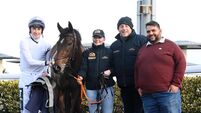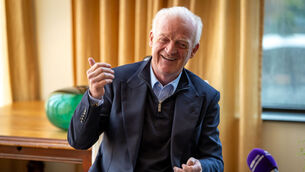Fallon one of 16 arrested
Champion jockey Kieren Fallon was one of the three riders arrested as part of an investigation into alleged race fixing. Fergal Lynch and Darren Williams have been named as the other two, together with trainer Karl Burke.
The investigation centres on suspicions of corruption within horse racing and fixing the outcome of races. It is understood the allegations involve more than 80 races over the last two years.












